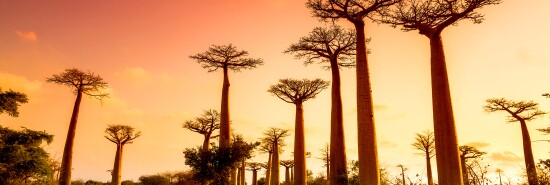
Fantasy travel adventures
Rob Long
Travel, they say, is a broadening experience. A few years ago, I hitched a ride on a container ship from Seattle to Shanghai and spent two weeks on the stormy Pacific, smoking cigars on the deck and pretending to be a mysterious adventurer.
I do a lot of daydreaming when I travel. Sometimes, when I’m walking through a foreign airport terminal, I’ll plug in my AirPods and cue up some atmospheric music — often, I must confess, the James Bond theme — and pretend to be a spy on the run. I’ll size up my fellow travelers and try to spot the secret assassin in the men’s fragrances section of the duty-free store. That kind of thing. On long layovers, I can construct an entire secret agent identity, which really helps pass the time.
That’s the best part about traveling. If you’re a daydreamer like me, you can really let it rip. Last week, for instance, I was in Madagascar, touring around the African nation with a few friends. We went to see the giant, ancient baobab trees and the hilariously antic lemurs and to get a look at this famously remote, deeply weird country.
I promise to keep the geography homework to a minimum, but here’s the nutshell: Madagascar is a gigantic island floating in the Indian Ocean off the coast of Mozambique, and it’s been sparsely populated since Indonesian explorers landed there sometime around A.D. 1000. It often seems more Asian than African, despite being merely 250 miles from the African coast. Its key export is vanilla, its system of government is chaotic democracy, and its chief historical figures were a series of psychotic rulers in the 19th century.
Most of the roads in Madagascar are unpaved, and the paved ones are pocked with car-sized, axle-snapping potholes. If you want to visit Madagascar, better do it before the rainy season begins in late January, or you’ll be slogging through the mud.
What you’ll see, if you come to Madagascar, is lush forestation and arid plains, blue-water beaches, and a capital city, Antananarivo, that turns out to be among the most easily pronounceable names in Madagascar. As I said: weird place.
One morning, we scrambled up a rocky hillside to see the traditional burial place of the Bara tribe. The people in Madagascar have an elaborate way of handling the dead bodies of their relatives. First, the departed are carried to a temporary tomb — usually a niche in the rocks nearby. They wait a few months for nature to do its work on the corpse, then return to the niche, collect the bones and whatever is still attached, take the gruesome package back to the village to scrape the bones clean, rub them with animal fat and honey, wrap them in silk, and then carry them higher on the mountain for permanent burial in the family rock crevice.
It seems creepy to us, but then I think the Malagasy people would find it equally weird that some people in the United States keep the ashes of their deceased loved ones in urns next to a flat-screen television. The world is a complicated place. We tend to work with what we have.
As we neared the tomb, my daydreaming went into overdrive. I was no longer a middle-aged American puffing exhaustedly in the heat. I was a famous archaeologist climbing over the rocks to find the Lost Tomb of the Madagascar King, a fantasy that lasted until we actually arrived at the tomb and discovered that someone else was there, a young woman, standing in front of a pile of bones and desiccated fabric and some other indistinct material, pouting her lips out seductively and taking a selfie.
The spell was broken. I was convinced this was the worst example of disrespectful tourist behavior ever until our guide told us that the young woman was from the local tribe and that the bones belonged to her grandmother.
“Fine,” I said, “but why is she doing the duck-lips thing and pushing out her butt?” He shrugged with a Kids, whaddya gonna do? expression on his face.
Look, it’s their country and their culture, and they can do anything they want with the bones of their dead. If a young Malagasy girl wants to pretend to be Kim Kardashian in front of a pile of what used to be her Nana, fine with me. But I had come a long way up a steep hill, and it would have been nice had she stopped pretending to be a famous influencer long enough for me to pretend to be Indiana Jones. It’s a lot more fun when you’re the only star in the daydream.
Rob Long is a television writer and producer and the co-founder of Ricochet.com.
